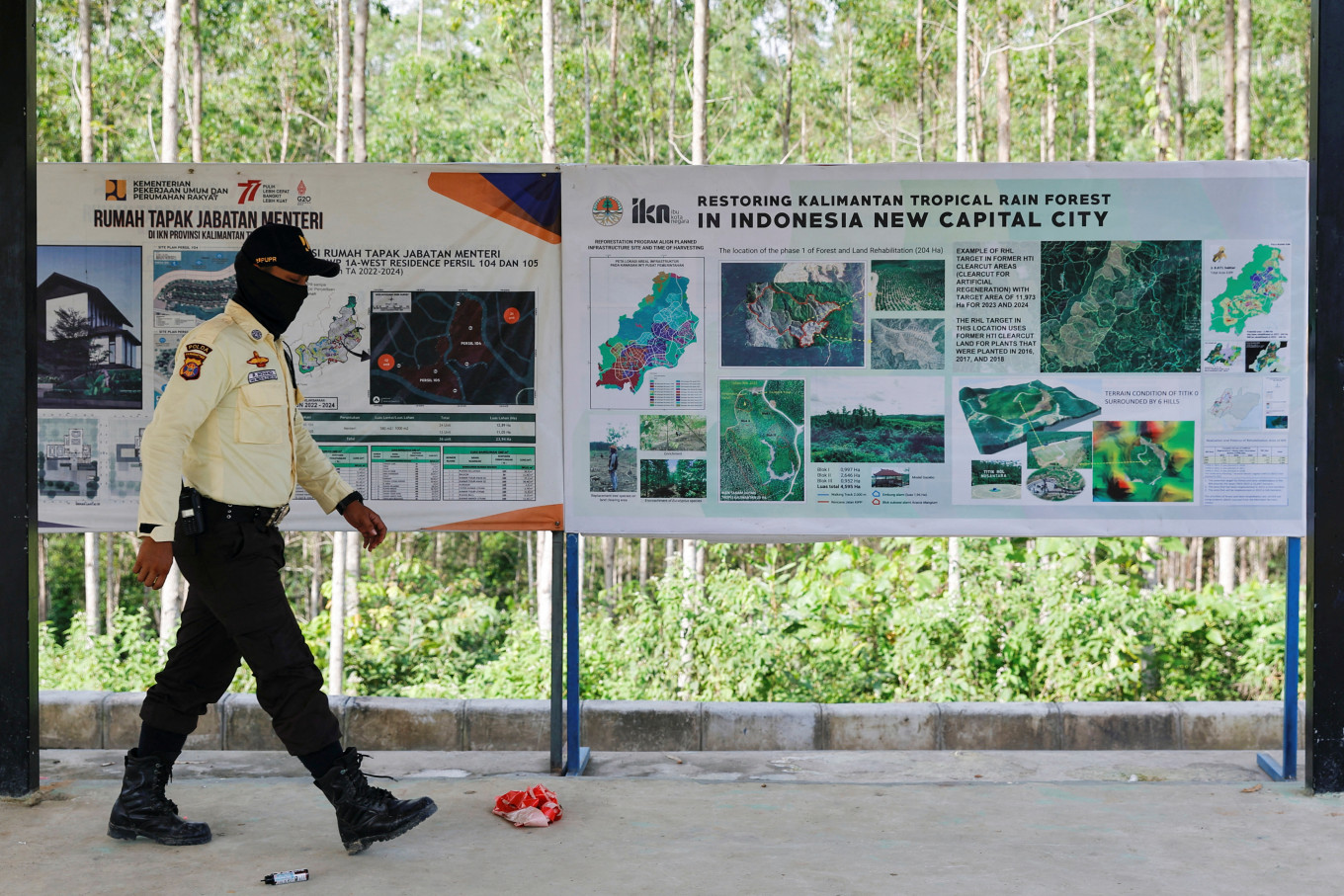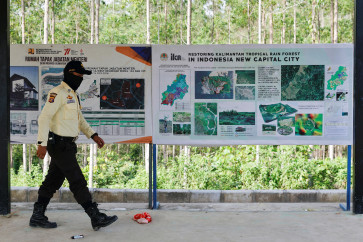Popular Reads
Top Results
Can't find what you're looking for?
View all search resultsPopular Reads
Top Results
Can't find what you're looking for?
View all search resultsPlan B for new capital for Indonesia: Horizontal decentralization
Construction work in the new capital will pressure a fragile physical and socioeconomic environment as land is cleared for new office buildings, homes and the infrastructure needed for a modern national government.
Change text size
Gift Premium Articles
to Anyone
O
ne of President Joko “Jokowi” Widodo’s more ambitious programs is to shift Indonesia’s capital from its present site in Jakarta to East Kalimantan on the island of Borneo.
The plan envisages creating a new city, Nusantara. Nearly 1 million government employees, and their families, will move to newly built Nusantara offices and homes. This project recognizes that Jakarta is increasingly at risk from flooding, both from rising sea levels induced by climate change and sinking land, partly a result of unsustainable pumping of water from underground aquifers.
Moving the seat of government away from Java is also a statement that the country belongs to everyone on Indonesia’s more than 18,000 islands, reducing the historically dominant role of Java.
Placing a new capital to draw a country together has many precedents, including Washington, DC, in the United States, Brasilia for Brazil, Naypyidaw for Myanmar and Astana for Kazakhstan. All of these have faced real challenges and controversies.
There are lessons to be drawn from these other efforts.
First of all, as it involves building an entirely new city, it will be expensive, with construction estimated at US$32 billion. It will pressure a fragile physical and socioeconomic environment as land is cleared for new office buildings, homes and the infrastructure needed for a modern national government. The carbon footprint resulting from land clearance and new construction will be huge.
Attempting to accomplish the whole plan over the next few years will greatly complicate matters, requiring massive construction in a place with little experience with the scale of work needed.



















